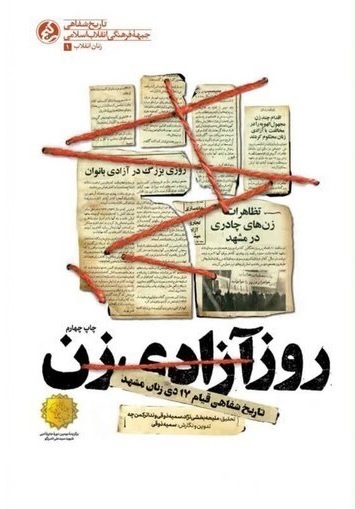Efforts to Inform the Villagers
Compiled by: Islamic Revolution Website
Translated by: Fazel Shirzad
2024-9-18
Nasrin Barkhan: "We were a group that all of us had direct contact with Mr. Mehdi Farodi; the meetings, trainings and courses we had, all of these were done in Mr. Farodi's house.
For an instance, we used to spread some of the Imam's announcements here and there; we went to the villages and did some propaganda with Maryam Farodi and one of the other children; we talked with the villagers. Because we believed that the masses of the people should be informed; we thought that the villagers are more suffering and deprived and more susceptible, so we decided to use the space that exists in the villages. Of course, we didn't just leave, we collected a lot of clothes and took them there to help them. I don't remember the exact villages now, maybe one of them was near to Ferdous. The villagers were very accepting, very kind. We didn't even need to enter their house with anything in our hands, as soon as they saw a stranger enter and greet them, they welcomed them. We sat and chatted very easily. We, who did not analyze politics for them, chatted: "What do you have, dear Mother?" How do you support yourself? from where? So why like this? "In the form of a sympathetic conversation, we would tell them that your conditions should not be like this, you can demand more than these, you have the right to more than these, and at the same time, we realized that it was very interesting for them; It means that maybe this kind of encounters would happen less with them."[1]

[1] Sources: Zoghi, Somia, Women's Liberation Day: Oral history of the 17th of January women's uprising in Mashhad, Tehran: Rahyar, 2018, pp. 28-29.
Number of Visits: 1869








The latest
- Fasting in Tikrit Prison No. 16; Test of Faith in the Heart of Hardship
- An Examination of the Educational Function of Sacred Defense Memoirs in Universities and Schools
- Pathology of Oral History Education in Iran
- Third Regiment: Memoirs of an Iraqi Prisoner of War Doctor – 18
- Practical Models for Simulating Texts in Distinguished, Signature Styles, Under the Use of AI Tools in Resistance Literature
- A Recollection by Ali Tahiri of a Military maneuver
- 100 Questions/17
- Third Regiment: Memoirs of an Iraqi Prisoner of War Doctor – 17
Most visited
- Oral History News of December-January 2026
- Practical Models for Simulating Texts in Distinguished, Signature Styles, Under the Use of AI Tools in Resistance Literature
- Third Regiment: Memoirs of an Iraqi Prisoner of War Doctor – 17
- 100 Questions/17
- A Recollection by Ali Tahiri of a Military maneuver
- Third Regiment: Memoirs of an Iraqi Prisoner of War Doctor – 18
- Pathology of Oral History Education in Iran
- An Examination of the Educational Function of Sacred Defense Memoirs in Universities and Schools
100 Questions/13
We asked several researchers and activists in the field of oral history to express their views on oral history questions. The names of each participant are listed at the beginning of their answers, and the text of all answers will be published on this portal by the end of the week. The goal of this project is to open new doors to an issue and promote scientific discussions in the field of oral history.Oral History of 40 Years
One of the main hypotheses regarding the reason for the growth and expansion of oral history in the modern era relates to the fact that oral history is the best tool for addressing lesser-known topics of contemporary history. Topics that, particularly because little information is available about them, have received less attention.Omissions in the Editing of Oral History
After the completion of interview sessions, the original recordings are archived, the interviews are transcribed, proofread, and re-listened to. If the material possesses the qualities required for publication in the form of an article or a book, the editing process must begin. In general, understanding a verbatim transcription of an interview is often not straightforward and requires editing so that it may be transformed into a fluent, well-documented text that is easy to comprehend.100 Questions/8
We asked several researchers and activists in the field of oral history to express their views on oral history questions. The names of each participant are listed at the beginning of their answers, and the text of all answers will be published on this portal by the end of the week. The goal of this project is to open new doors to an issue and promote scientific discussions in the field of oral history.

